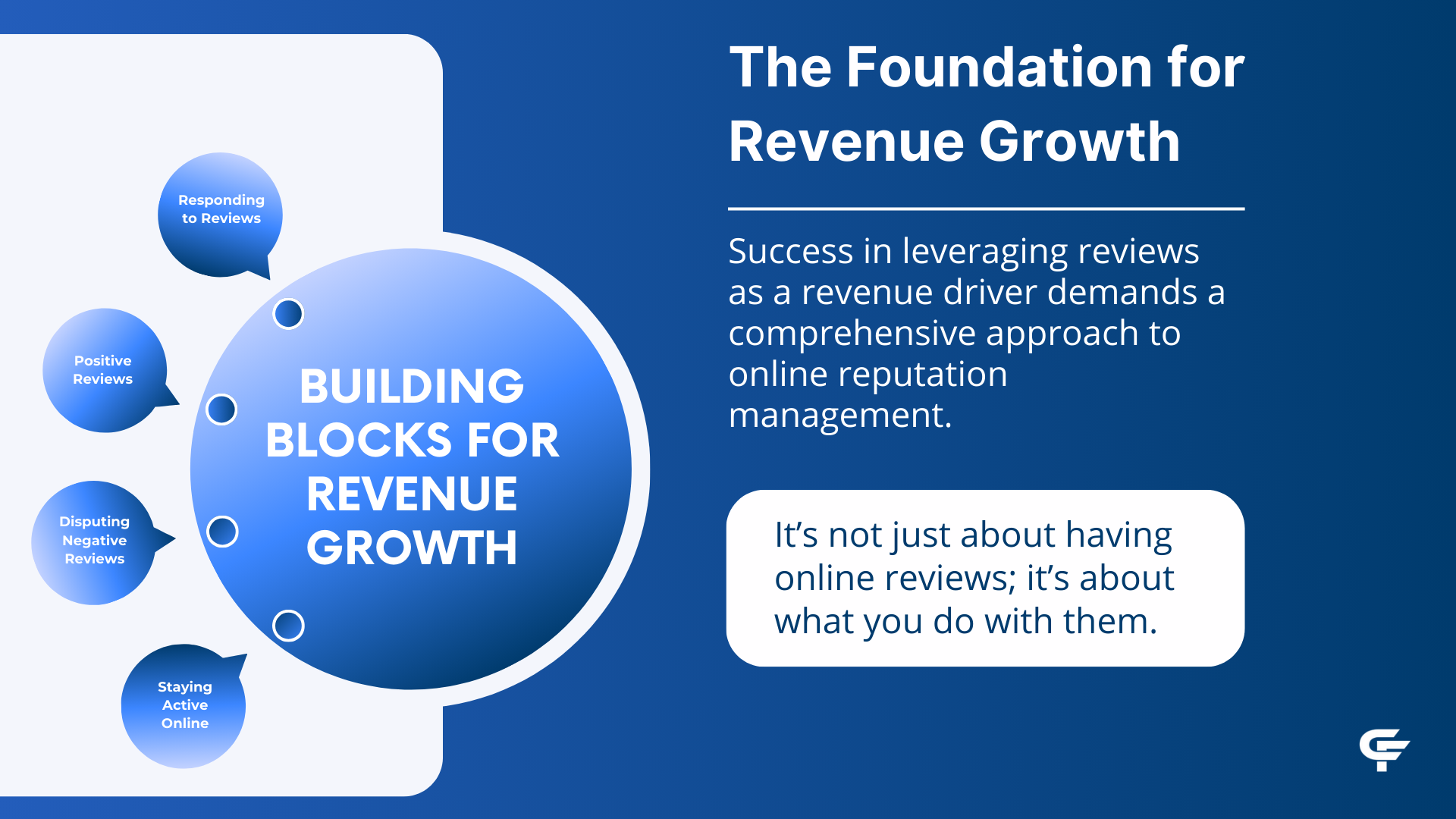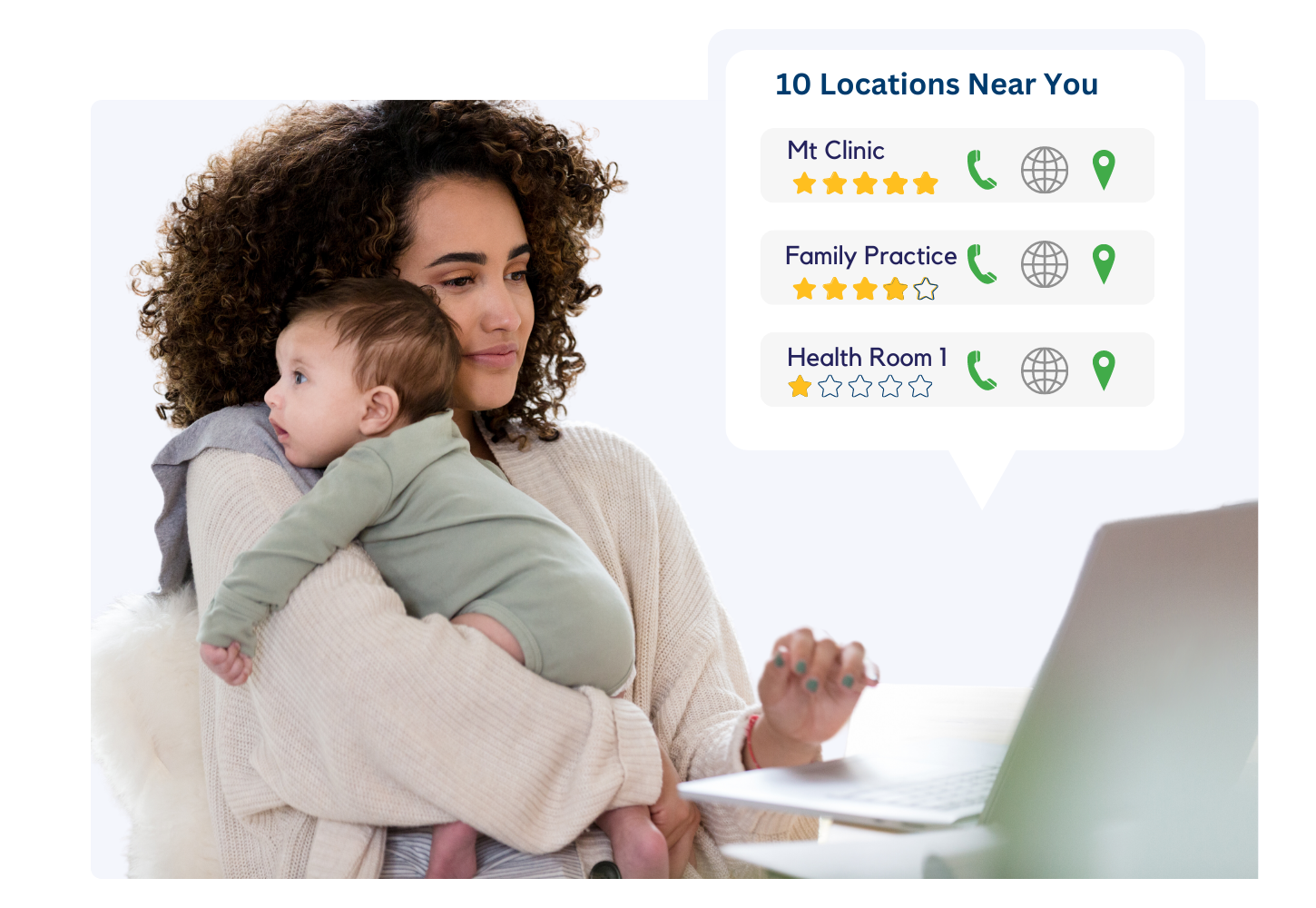How Does Your Online Reputation Impact Revenue In Healthcare?
It is also important to note that Healthcare experienced an almost 200% increase in total reviews left per location from 2019 to 2022.
Since patients often turn to online reviews and ratings to inform their healthcare decisions, it is crucial for providers to maintain a positive online presence. A favorable online reputation not only helps healthcare providers stand out in the crowded digital landscape, but also builds trust and credibility among patients. This, in turn, can lead to increased patient loyalty, and revenue growth for the practice.

The Power of Comprehensive Review Management Approach
This includes actively engaging with patient feedback, generating positive reviews, and ensuring a vibrant online presence across various platforms.
By adopting a holistic approach to reputation management, specifically your review management, healthcare providers can effectively differentiate themselves from competitors, rank higher, grow their reach, increase their revenue, and attract more patients to their practice.
Strategies for Organic Ranking
Google considers the following metrics when prioritizing business in Google Searches:

Overall Star Rating

Quality of Reviews

Quantity of Reviews

Frequency of Reviews

Business Responses
So what does this mean?
This means it is important that you have a strategy that combines generating positive reviews, managing patient feedback, and optimizing online listings. Let’s break down each step and explore why it’s important and how to implement it strategically.
Crafting a Revenue Growing Reputation Management Strategy:
1. Generating Positive Reviews:
Positive reviews play a crucial role in shaping your healthcare practice’s online reputation. They not only provide social proof of your expertise and quality of care but also influence potential patients’ decisions when choosing a healthcare provider. Here’s why generating positive reviews is important:
-
- Trust and Credibility: When customers leave positive reviews, you build trust and credibility among potential patients, making them more likely to choose your practice over your competitors. 87% of consumers trust online reviews as much as personal recommendations.
-
- Improved Visibility: Reviews also contribute to your practice’s visibility in search engine results, as search algorithms often prioritize businesses with a higher quantity and quality of reviews. Ranking higher online increases website visits, appointments, and revenue growth.
How to Generate Reviews:
✔️❤️ Encourage Satisfied Patients: Actively encourage satisfied patients to leave reviews by providing them with easy-to-use review platforms, or by sending follow-up emails after appointments that invite them to leave a review.
✔️🕗 Timing Matters: Ask for reviews at the right time—immediately after a positive experience or successful treatment—to increase the likelihood of receiving positive feedback.
2. Reviews: Managing Patient Feedback
Managing patient feedback involves not only responding to reviews but also actively listening to patient concerns and addressing them promptly. Here’s why managing patient feedback is important:
-
- Builds Patient Trust: Responding to patient feedback—both positive and negative—shows current and potential customers that you care and value their input. It also shows that you are committed to providing excellent care.
- Opportunity for Improvement: Negative reviews have a silver lining! Negative feedback provides you with valuable insights into areas for improvement, allowing you to address issues and enhance patient satisfaction.
Responding to Reviews Strategically
✔️🕗 Timely Responses: Respond to your patient reviews and feedback as soon as you can, ideally within 24-48 hours. This shows that you’re attentive and responsive to patient concerns. Data shows that users are 33% more likely to improve or remove a negative review when you respond.
✔️💬 Personalized Responses: Make sure you are personalizing your responses to patient reviews. When you reply to patients, make sure you address them by name and acknowledge their specific feedback or concerns. This personal touch shows that you’re genuinely engaged with patients and care about their experiences.
✔️🙂 Keep a Professional Tone: Maintain a professional and empathetic tone when you are responding to reviews, even when addressing negative feedback. You want to make sure you demonstrate your commitment to patient care. Avoid being defensive or dismissive, and focus on addressing the patient’s concerns. Make sure you take the conversation online when it comes to negative reviews.
3. How to Optimize Online Listings:
✔️📍 Claim and Verify Listings: Claim and verify your practice’s listings on popular platforms such as Google Business Profile, Healthgrades, and more to ensure accuracy and control over your practice’s information. Ensuring you have control over your listings allows you to update your practice’s information, respond to reviews, and engage with potential patients.
✔️🔑 Regular Updates: Regularly review and update your practice’s online listings to reflect any changes that have been made. Update items like contact information, services offered, or business hours. Patients can find it very frustrating when the information online is not true. Keeping your listings accurate and up-to-date demonstrates professionalism and reliability, which can positively impact patient perceptions and, ultimately, revenue growth.
Conclusion

Negative Review Removal
Data-Driven Growth
Net Promoter Score Surveys
Automated Review Responses
Local Listings
Social Media Management

Simplify Your Reputation Management
Learn why so many brands trust us for Reputation Management

















